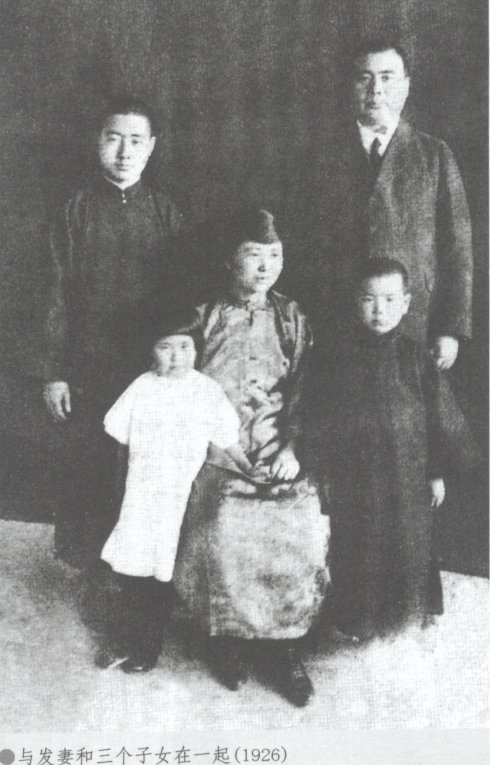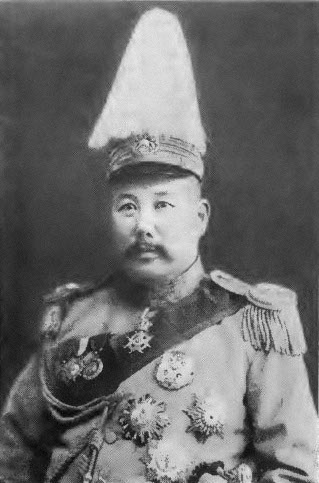|
Ma Hongbin
Ma Hongbin ( zh, 马鸿宾, Xiao'erjing: , September 14, 1884 – October 21, 1960), was a prominent Chinese Muslim warlord active mainly during the Republican era, and was part of the Ma clique. He was the acting Chairman of Gansu and Ningxia Provinces for a short period. Life Ma was born in the village of Hanchiachi, in Linxia County, Gansu. He was the son of Ma Fulu who died in 1900 when fighting against the foreigners in the Battle of Peking (1900) in the Boxer Rebellion. As a nephew of Ma Fuxiang, he followed him and later Feng Yuxiang into the army. He and Ma Fuxiang protected a Catholic mission in Sandaohe from attacks by the Gelaohui, and he received the Order of Leopold (Belgium) ("King Leopold decoration") During an uprising in Gansu in the Central Plains War, the Muslim General Ma Tingxiang was attacked by Ma Hongbin who was serving in Feng's administration in Ningxia.刘国铭主编,中国国民党九千将领,北京:中华工商联合出版社, 1993年 ... [...More Info...] [...Related Items...] OR: [Wikipedia] [Google] [Baidu] |
Ma (surname)
Ma () is a Chinese family name. The surname literally means " horse". As of 2006, it ranks as the 14th most common Chinese surname in Mainland China and the most common surname within the Chinese Muslim community, specifically the Hui people, Dongxiang people and Salar people. In 2019 it was the 13th most common surname in Mainland China. A 2013 study found it to be the 13th most common, shared by 17,200,000 people or 1.290% of the population, with the province with the most being Henan. It is the 52nd name on the '' Hundred Family Surnames'' poem.K. S. Tom. 989(1989). Echoes from Old China: Life, Legends and Lore of the Middle Kingdom. University of Hawaii Press. . The offspring of Zhao She adopted "Ma" (馬), the first word of the district Ma Fu, as their surname. Other romanizations include Mah, Beh and Mar. Hui Muslims, Salars, Bonan and Dongxiang people commonly adopted Ma as the translation for their surname Muhammad. for e.g. Ma Jian, Ma Benzhai, Ma clique. Dur ... [...More Info...] [...Related Items...] OR: [Wikipedia] [Google] [Baidu] |
Order Of Leopold (Belgium)
The Order of Leopold ( nl, Leopoldsorde, french: Ordre de Léopold, ) is one of the three current Belgian national honorary orders of knighthood. It is the oldest and highest order of Belgium and is named in honour of its founder, King Leopold I. It consists of a military, a maritime and a civil division. The maritime division is only awarded to personnel of the merchant navy, and the military division to military personnel. The decoration was established on 11 July 1832 and is awarded by Royal order. History When Belgium became independent of the Netherlands, there was an urgent need to create a national honour system that could serve as a diplomatic gift. The national congress provided this exclusive right to the sovereign, this military honour system was written in Article 76. The first King of the Belgians, Leopold I of Belgium, used his constitutional right in a larger way than foreseen: not only military merit, but every service in honour of the Kingdom. Two years ... [...More Info...] [...Related Items...] OR: [Wikipedia] [Google] [Baidu] |
Muslim Conflict In Gansu (1927–30)
Muslims ( ar, المسلمون, , ) are people who adhere to Islam, a monotheistic religion belonging to the Abrahamic tradition. They consider the Quran, the foundational religious text of Islam, to be the verbatim word of the God of Abraham (or ''Allah'') as it was revealed to Muhammad, the main Islamic prophet. The majority of Muslims also follow the teachings and practices of Muhammad (''sunnah'') as recorded in traditional accounts (''hadith''). With an estimated population of almost 1.9 billion followers as of 2020 year estimation, Muslims comprise more than 24.9% of the world's total population. In descending order, the percentage of people who identify as Muslims on each continental landmass stands at: 45% of Africa, 25% of Asia and Oceania (collectively), 6% of Europe, and 1% of the Americas. Additionally, in subdivided geographical regions, the figure stands at: 91% of the Middle East–North Africa, 90% of Central Asia, 65% of the Caucasus, 42% of Southeast Asi ... [...More Info...] [...Related Items...] OR: [Wikipedia] [Google] [Baidu] |
Gelaohui
The Gelaohui (; Pinyin: Gēlǎohuì), usually translated as Elder Brothers Society, was a secret society and underground resistance movement against the Qing Dynasty. Although it was not associated with Sun Yat-sen's Tongmenghui, they both participated in the Xinhai Revolution. It was also known as Futaubang, or Hatchet Gang, as every member allegedly carried a small hatchet inside the sleeve. Li Hanzhang (李瀚章), the governor of Hunan in the Qing Dynasty, stated in the memorial that the Gelaohui "originated in Sichuan and Guizhou for a long time", the society engaged in several uprisings across China, notably in Hunan province during 1870 and 1871. Numerous individuals notable in late-19th and early-20th Chinese history (including Zhu De, Wu Yuzhang, Liu Zhidan and He Long) were Gelaohui members. Strongly xenophobic and anti-Manchu Qing, the Gelaohui were active in the Xinhai Revolution of 1911, as well as taking part in attacks on Catholic missions and converts in 1912. Or ... [...More Info...] [...Related Items...] OR: [Wikipedia] [Google] [Baidu] |
Feng Yuxiang
Feng Yuxiang (; ; 6 November 1882 – 1 September 1948), courtesy name Huanzhang (焕章), was a warlord and a leader of the Republic of China from Chaohu, Anhui. He served as Vice Premier of the Republic of China from 1928 to 1930. He was also known as the "Christian General" for his zeal to convert his troops and the "Traitorous General" for his penchant to break with the establishment. In 1911 he was an officer in the ranks of Yuan Shikai's Beiyang Army but joined forces with revolutionaries against the Qing dynasty. He rose to high rank within Wu Peifu's Zhili warlord faction but launched the Beijing Coup in 1924 that knocked Zhili out of power and brought Sun Yat-sen to Beijing. He joined the Nationalist Party (KMT), supported the Northern Expedition and became blood brothers with Chiang Kai-shek, but resisted Chiang's consolidation of power in the Central Plains War and broke with him again in resisting Japanese incursions in 1933. He spent his later years su ... [...More Info...] [...Related Items...] OR: [Wikipedia] [Google] [Baidu] |
Ma Fuxiang
Ma Fuxiang (, Xiao'erjing: , French romanization: Ma-Fou-hiang or Ma Fou-siang; 4 February 1876 – 19 August 1932) was a Chinese military and political leader spanning the Qing Dynasty through the early Republic of China and illustrated the power of family, the role of religious affiliations and the interaction of Inner Asian China and the national government of China. He was a prominent Muslim warlord in northwest China. Ma Fuxiang originally served under Dong Fuxiang, like other Ma Clique Muslim warlords such as Ma Anliang. Ma was born in Linxia, Gansu. He was named the military governor of Xining and then of Altay, in Qing times. He held a large number of military posts in the northwestern region after the founding of the republic. He was governor of Qinghai in 1912, Ningxia from 1912 to 1920, and Suiyuan from 1920 to 1925. Having turned to Chiang Kai-shek in 1928, he was made chairman (governor) of the government of Anhui in 1930. He was elected a member of the N ... [...More Info...] [...Related Items...] OR: [Wikipedia] [Google] [Baidu] |
Boxer Rebellion
The Boxer Rebellion, also known as the Boxer Uprising, the Boxer Insurrection, or the Yihetuan Movement, was an anti-foreign, anti-colonial, and anti-Christian uprising in China between 1899 and 1901, towards the end of the Qing dynasty, by the Society of Righteous and Harmonious Fists (), known as the "Boxers" in English because many of its members had practised Chinese martial arts, which at the time were referred to as "Chinese boxing". After the Sino-Japanese War of 1895, villagers in North China feared the expansion of foreign spheres of influence and resented the extension of privileges to Christian missionaries, who used them to shield their followers. In 1898 Northern China experienced several natural disasters, including the Yellow River flooding and droughts, which Boxers blamed on foreign and Christian influence. Beginning in 1899, Boxers spread violence across Shandong and the North China Plain, destroying foreign property such as railroads and attacking or ... [...More Info...] [...Related Items...] OR: [Wikipedia] [Google] [Baidu] |
Battle Of Peking (1900)
The Battle of Peking, or historically the Relief of Peking, was the battle fought on 14–15 August 1900 in Peking, in which the Eight-Nation Alliance relieved the siege of the Peking Legation Quarter during the Boxer Rebellion. From 20 June 1900, Boxers and Imperial Chinese Army troops had besieged foreign diplomats, citizens and soldiers within the legations of Austria-Hungary, Belgium, Britain, France, Italy, Germany, Japan, Netherlands, Russia, Spain and the United States. Background The first attempt to relieve the legations by a force of over 2,000 sailors and marines commanded by British Admiral Edward Seymour was turned back by strong opposition on 26 June. On 4 August a second, much larger relief force, called the Eight-Nation Alliance, marched from Tientsien (Tianjin) toward Peking. The alliance force consisted of 22,000 troops from the following countries: United States - 2,000 (soldiers and marines with artillery); Japan - 10,000; Russia - 4,000 (infantry, Cos ... [...More Info...] [...Related Items...] OR: [Wikipedia] [Google] [Baidu] |
Ma Fulu
Ma Fulu ( Chinese: 马福禄, Pinyin: Mǎ Fúlù, Xiao'erjing: ; 1854 – 1900), a Chinese Muslim, was the son of General Ma Qianling and the brother of Ma Fucai, Ma Fushou and Ma Fuxiang. He was a middle born son. In 1880, Ma Fulu went to Beijing to take advanced military exams when he had an audience before the Emperor. He accidentally committed a faux pas since he did not know proper palace etiquette and subsequently served as a guard for the Emperor to make up for this incident. He studied at a martial arts hall and military school. In 1895, he served under general Dong Fuxiang, leading loyalist Chinese Muslims to crush a revolt by rebel Muslims in the Dungan revolt (1895–1896). His loyalist Muslim troops slaughtered and beheaded the rebel Muslims and his commanding officers received the heads of the rebels from Ma. In 1897, a military Jinshi degree was awarded to Ma Fulu. Ma was transferred along with his brother Ma Fuxiang and several cousins to serve as officers u ... [...More Info...] [...Related Items...] OR: [Wikipedia] [Google] [Baidu] |
Chiang Kaishek With Ma Hongkui And Ma Hongbin
{{disambiguation ...
Chiang may mean: * a Chinese surname (蔣), alternatively spelt Jiang ** Chiang Kai-shek, former leader of the Republic of China * Chi'ang, variant spelling of the ancient Qiang (historical people) (羌) * Chi'ang, variant spelling of the modern Qiang people (羌族) in Wenchuan * Chiang, variant spelling of jiang soy sauce * Chiang (place name), a term for "town" in Northern Thailand and surrounding areas See also * Chiang Dao (other) *Jiang (other) Jiang may refer to: * ''Jiang'' (rank), rank held by general officers in the military of China * Jiang (surname), several Chinese surnames **Jiang Zemin (1926–2022), as general secretary of the Chinese Communist Party *Jiang River The Jiang Riv ... [...More Info...] [...Related Items...] OR: [Wikipedia] [Google] [Baidu] |
Republic Of China (1912–1949)
The Republic of China (ROC), between 1912 and 1949, was a sovereign state recognised as the official designation of China when it was based on Mainland China, prior to the relocation of its central government to Taiwan as a result of the Chinese Civil War. At a population of 541 million in 1949, it was the world's most populous country. Covering , it consisted of 35 provinces, 1 special administrative region, 2 regions, 12 special municipalities, 14 leagues, and 4 special banners. The People's Republic of China (PRC), which rules mainland China today, considers ROC as a country that ceased to exist since 1949; thus, the history of ROC before 1949 is often referred to as Republican Era () of China. The ROC, now based in Taiwan, today considers itself a continuation of the country, thus calling the period of its mainland governance as the Mainland Period () of the Republic of China in Taiwan. The Republic was declared on 1 January 1912 after the Xinhai Revolution, wh ... [...More Info...] [...Related Items...] OR: [Wikipedia] [Google] [Baidu] |






